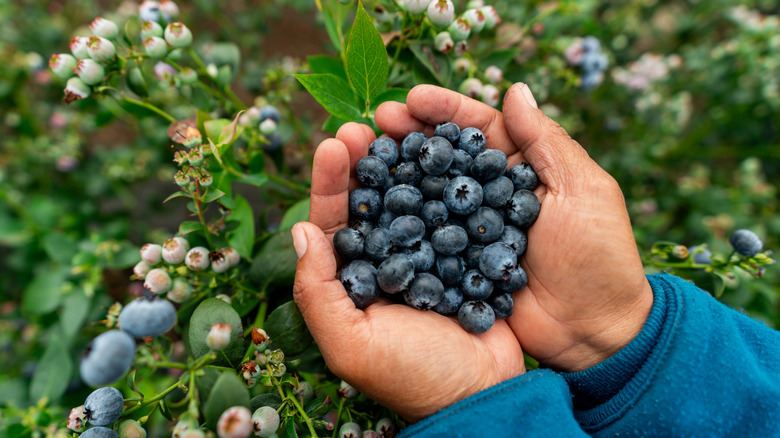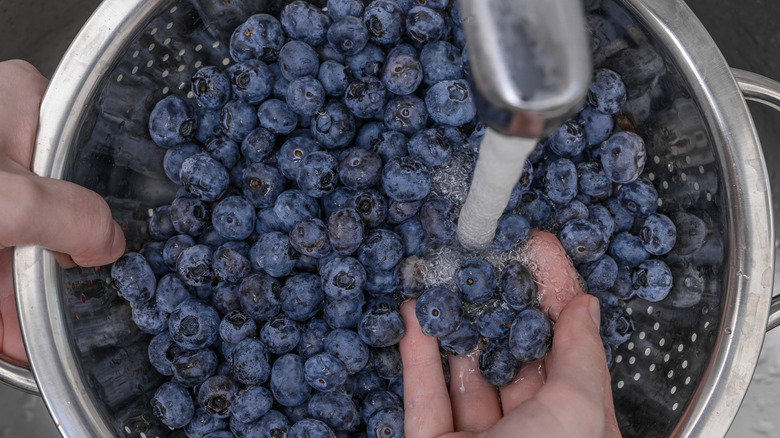Are Blueberries With White Spots Still Good To Eat?
Blueberries are packed with antioxidants, fiber, and vital nutrients like Vitamin C, so grabbing a handful to snack on is typically a great idea. However, you may want to hold off if you notice white spots congregating on your fruit. Why? This is actually mold, usually of the Botrytis cinerea variety, which often pops up on fruits and vegetables that are past their prime. If you notice white spots on blueberries, it's best to avoid eating them.
Accidentally ingesting a moldy berry isn't typically dangerous. Even in very large quantities, eating moldy berries is unlikely to cause much more than mild digestive problems. However, if you notice signs of an allergic reaction like respiratory distress, see a doctor.
The good news? You don't have to toss the whole carton because of a few moldy berries. While you shouldn't just cut the mold off old bread, as microspores can spread throughout the loaf, blueberries are a different story. Toss the moldy berries out, as well as any berries that were in direct contact with the mold. If the remaining berries are firm (rather than mushy), rinse and enjoy.
How do I keep my blueberries from getting moldy?
It's impossible to delay mold indefinitely, but there are ways to stretch out the shelf life of your fruit. One mistake everyone makes with blueberries is only washing them with water. Vinegar's acidic profile helps stall mold growth. You can make a vinegar bath for blueberries by combining 1 cup vinegar and 3 cups water. Give your berries a good soak, then rinse them in a colander. Make sure to dry your berries thoroughly before putting them back in the fridge, as excessive moisture can worsen mold.
Additionally, how you refrigerate berries can also impact their longevity. A common storage mistake that contributes to moldy berries is storing them in an airtight container with the lid sealed. If you do transfer your berries to a sealable airtight container, keep the lid partly open to avoid trapping moisture inside. If possible, store blueberries in single layers with paper towels in-between. This creates a dryer environment, which can stymie mold growth. Lastly, when you put your berries in the fridge, avoid the crisper. A crisper drawer's subpar circulation creates a humid environment, a breeding ground for mold.

